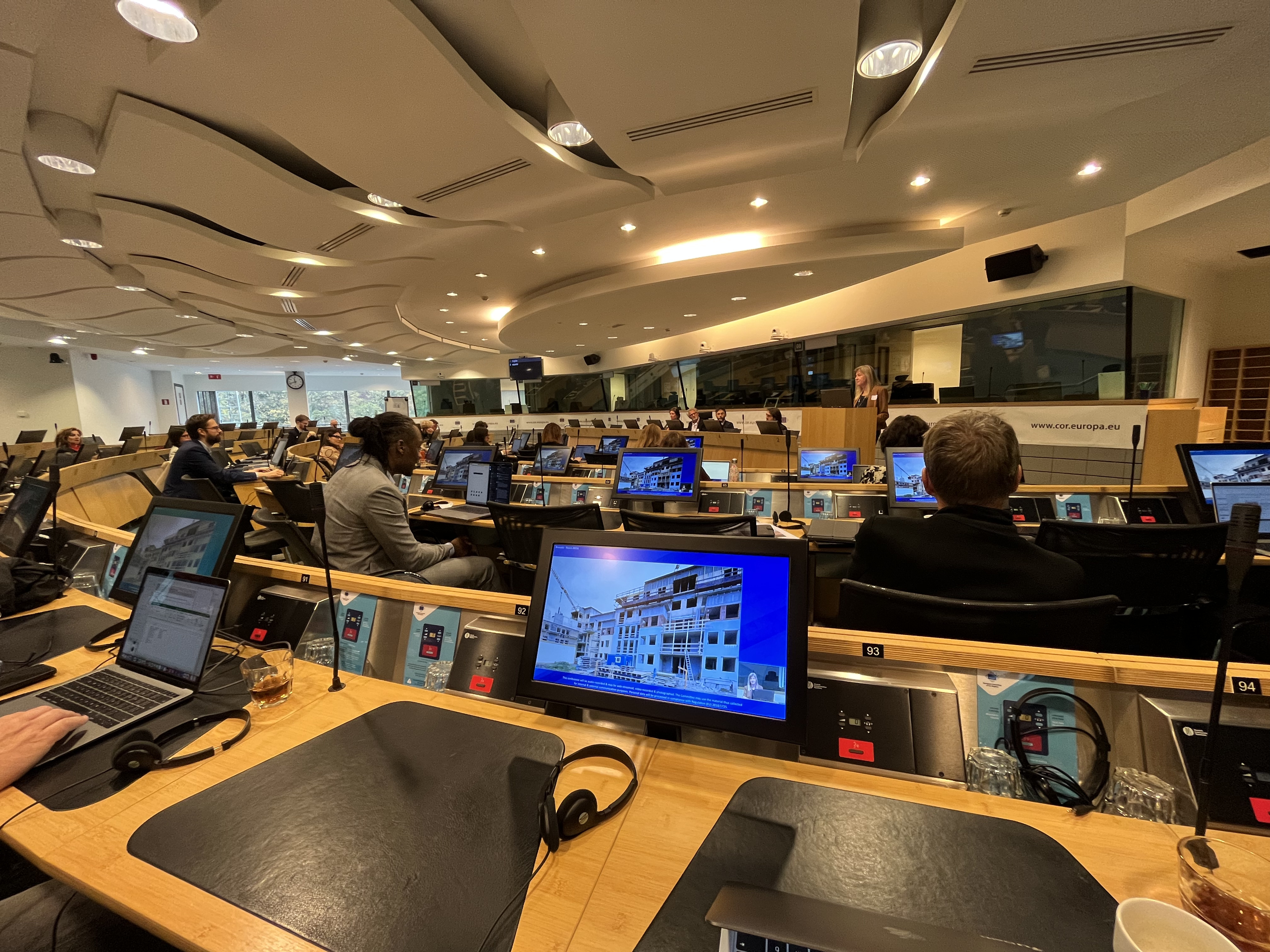Thriving Through Crises
Posted on 22-11-2022
Ursula von der Leyen, President of the European Commission, used the word ‘crisis’ ten times in her latest State of the Union. As one of her distant predecessors, Jean Monnet, once said that “Europe will be forged in crises”[i], I could hardly think of a more interesting time to be seconded in Brussels. Whether crises relate to housing, climate, energy, cost-of-living, or the war in Ukraine, they necessitate representatives to go beyond their own interests and come together in a constructive matter. I greatly appreciate the opportunity to take a closer look at this political dance during my secondment at Housing Europe.
Brussels comes with a unique dialect, often ridiculed and currently under scrutiny after a study (Rauh, 2022) showed that it baffles anyone except technocrats who use it on a day-to-day basis. Frankly, I did not have a clue what a ‘trilogue meeting’ consisted of before starting here, but now I have become fascinated by this closed-door negotiation process between the European Commission, the European Parliament and the European Council (i.e. national governments). In the past few weeks, I have tried to follow talks on the Energy Performance of Buildings Directive (EPBD) revision and the Emission Trading Scheme (ETS) extension for Housing Europe.
Once you find your way through the EU’s web of acronyms, it is rather engaging to read through related documents and visit relevant events. They allow you to identify trends that will be further developed across the continent in the years after. While discussions about the promise of ‘one-stop-shops’ and ‘energy communities’ are not new, recent emphasis on these terms in European corridors suggest that a surge of policy incentives is to be expected in the near future. Another ubiquitous term, at least since last year’s surge in gas prices, lies at the heart of my research: energy poverty.
During Housing Europe’s annual Renovation Summit, held last week, energy poverty was even designated as one of the most pressing issues of our time by Alessia di Gregorio, deputy head of Social Economy at the European Commission. She urged member states to both monitor it continuously as well as address it with adequate retrofit policies. Marcos Ros Sempere, an MEP who serves as EPBD ‘shadow rapporteur’, referred to energy poverty alleviation as one of the main pillars of the Renovation Wave, emphasising the need to allocate funds to “the people who need it most”.
It strengthens me in my belief that national governments and other stakeholders (such as housing associations and energy suppliers) need to monitor which residents are most at risk. Not only because the revised Electricity Directive (Article 29 in Directive 2019/944 for EU insiders) and upcoming Social Climate Fund require them to, but because recognitional justice is a prerequisite for distributional justice. The only way to make the ‘just transition’ more than another empty shell is by identifying the disadvantaged, having them participate in the legislative process, and drafting policies that genuinely benefit their livelihoods.
[i] The original quote was "L'Europe se fera dans les crises et elle sera la somme des solutions apportées à ces crises" which would translate into "Europe will be forged in crises, and will be the sum of the solutions adopted for those crises" (Monnet, 1976).
References
Monnet, J. (1976). Mémoires. Paris: Fayard.
Rauh, C. (2022). Clear messages to the European public? The language of European Commission press releases 1985–2020. Journal of European Integration, 1-19.


